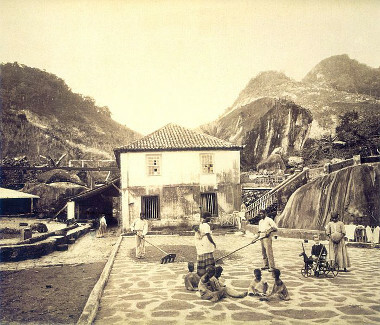In this text we will analyze the daily lives of indigenous children and, above all, we will emphasize the daily lives of children from the village of the Kuikurus, an indigenous ethnic group from the Alto Xingu, which is located at the confluences of the states of Pará and Mato Thick.
The daily lives of Kuikurus indigenous children are very different from the daily lives of children living in Brazilian capitals. However, children who live in small rural towns and on farms have routine activities similar to Kuikuru children.
Kuikuru children are used to spending the day in the river, where they bathe and play. Another game widely practiced among the “small” indigenous people is the fun with the bow and arrow in the woods. The adult indigenous people produce bows and arrows that are reduced in size and do not pose a risk to children's lives. In this way, the Kuikuru children will get used to dealing with these tools, so that, in when they become adults, they can practice hunting, the main source of food for the people indigenous peoples.
Just as it happens with the children of the city, that is, with the non-Indian children, who disobey their parents or guardians, disobedient indigenous children are also punished, usually stipulated by country.
Some adult Kuikuru Indians punish their disobedient children with a kind of comb (to comb their hair) made with monkey teeth – the indigenous call this object a “scraper”. Adults use this object on children's bodies, that is, they use the scraper on their arms and bodies, which suffer a lot from this punishment.
In addition to being a punitive practice, the Kuikurus scraper was widely used, according to the tradition of this ethnic group, as a way to strengthen the child's blood. However, even with the practice of scratching children, no Kuikuru adults hit their children. According to tradition, the custom of the village is not to hit, as these indigenous people believe that the mother who hits her child will not be taken care of by him when he grows up.
This fact (that the child abandons his parents for being beaten by them) is an issue taken seriously by the Kuikuru ethnic group. In non-indigenous society this fact is not so present: usually, parents hit their children without such worries and children abandon their parents when they get old, even without being spanked when kids.
By Leandro Carvalho
Master in History

